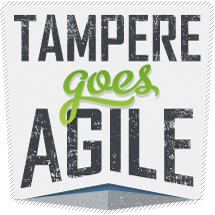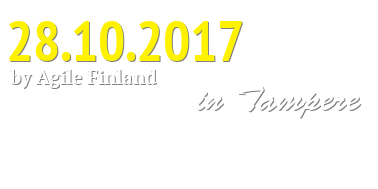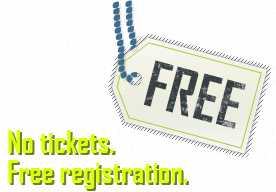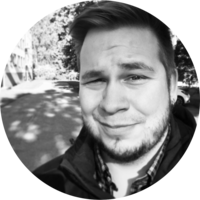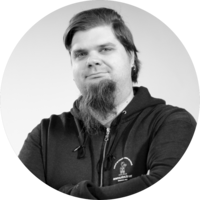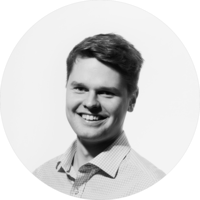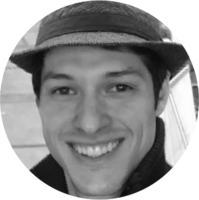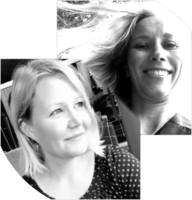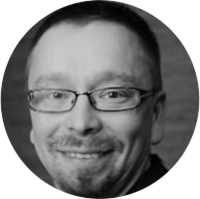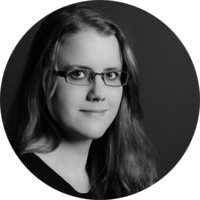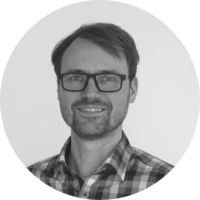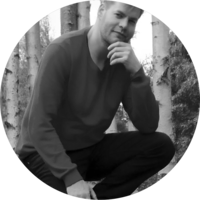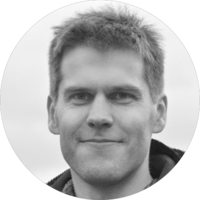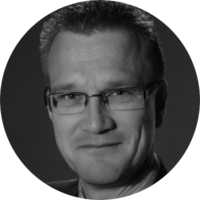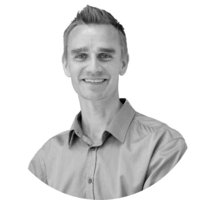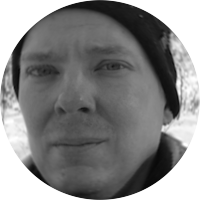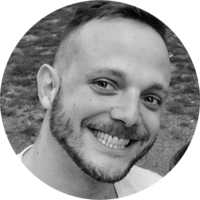Program
| Duetto 1 | Duetto 2 | Riffi | |
|---|---|---|---|
| 09:30 - 10:00 | Morning coffee | ||
| 10:00 - 10:15 | Opening the conference | ||
| 10:15 - 11:00 | Mika Turunen But I want the team to be X times faster! |
||
Mika Turunen: But I want the team to be X times faster!When you work with a team, at some point, you will face someone that will throw the “But I want the team to be X times faster!” at you. This is the point when you need to get into discussions of what it actually means to be fast and that there are no magic bullets for this. It’s a lot of hard work and dedications. This is a story of a team that managed to increase their speed and how we did it. |
|||
| 11:00 - 11:15 | Break - Coffee and tea sponsored by CGI | ||
| 11:15 - 11:45 | Kimmo Brunfeldt Case example on how a multivendor team works at its best |
Artur Margonari SpotiSAFeLeSS? Is it even a model? |
Kati Ilvonen & Hanna-Mari Loisa E3: Enabling, Empowering and Emotional |
Kimmo Brunfeldt: Case example on how a multivendor team works at its bestCase Example: an on-going multivendor cross-functional agile team. Established at customer premises, sitting next to PO and other business stakeholders. Adopted and tailored agile process, based on Scrum, Kanban and Futurice's Lean Service Creation. Great team spirit and cooperation with the customer has resulted into continuous delivery of successful results despite demanding, complex integrations. Artur Margonari: SpotiSAFeLeSS? Is it even a model?There are many known models out there to scale Agile: SAFe, LeSS, Spotify, Nexus... Have you ever thought about mixing them all, picking up the best of each? I'll share my experience in participating in the Agile transformation, together with other 65 Agile coaches, of one of the biggest bank in Europe and its success and failures. |
|||
| 11:45 - 12:00 | Break - Coffee and tea sponsored by CGI | ||
| 12:00 - 12:30 | Sami Lilja Simple solutions at the heart of Agile |
Miia Onkalo Challenges of agile methods in the system development and unexpectedly finding answers from the V-model |
|
Sami Lilja: Simple solutions at the heart of AgileTechnology is awesome! We can interact even we are separated by thousands of miles. Computers make us free from routines and do complicated calculations on behalf of us. But technology has also a dark side. It may become an impediment, make our work worse. Sometimes old trick is better than bag full of new apps. Agile is built around collaboration, responsiveness and creating superb outcomes. Tools and practises are "on the right side of the Agile Manifesto", they are necessary but not sufficient. Still many organisations try to improve by using new tools, new gadgets - new anything. And sometimes this prevents teams doing a good job. We often solve problems by introducing a tool or process. This talk shows an alternative: what if we can become Agile by having *less* tools and processes? This talk takes us back to the roots. It shows why low-tech is sometimes better and helps to understand when tools & technology only hide problems rather than solving them. It also explores lo-fi alternatives that have helped individuals interact and explains how hi-tech can support teams when hi-tech is required." Miia Onkalo: Challenges of agile methods in the system development and unexpectedly finding answers from the V-modelWhile developing complex system for area where daily work of end user is difficult to understand and capture we found out that common agile and waterfall methods failed to produce good results. This is our story of problem domain, alternatives we tried and finding of solution. |
|||
| 12:30 - 12:45 | Lunch | ||
Kati Ilvonen, Hanna-Mari Loisa: E3: Enabling, Empowering and EmotionalRegister to the workshops separately. Follow the link above. E3 (Enabling, Empowering, Emotional) is Ericsson internal 48 hour intensive coaching session to create the cultural movement through the individual growth and learning. Challenging ourselves in order to unleash our full potential is beneficial both for the company as well as for the individual. In E3 topics vary from challenging our limiting beliefs and thoughts to embracing the change and learning non-violent communication and empathy. Aim of the E3 session is to enable people to stop and reflect their behavior and actions, to empower them to take the full responsibility of their own life and to connect emotionally to themselves and others. Cultural movement is created inside out and every individual has crucial role in order to create winning culture and to challenge and support each other to reach their full potential. This experimental session is a short sampler of the actual E3 session. The plan is first to introduce E3 concept and then have a discussion around some of the E3 themes: for example collaboration, empathy, safety and trust. What these are and why they are important for everyone. Then we will interactively work with chosen topics in smaller groups. What is each topic influence to the culture, atmosphere, trust level and results in the organization? How to empathetically challenge your peers, how to create an environment where everyone can grow and flourish? For Ericsson R&D in Finland E3 intensive coaching session has been an alternative to established agile approaches, tool to create curious mindset and unleash the potential of individuals and teams in the organization. This method has been utilized also outside Finland R&D organization and has been taken in use in several other locations within global Ericsson to create companywide movement. |
|||
| 12:45 - 13:30 | Lunch continues | ||
| 13:30 - 14:00 | Eetu Kaivola Negative emotions, primary driver of team development |
Martin von Weissenberg Don't be random! Tools for structured team development |
Mika Turunen Practical AWS serverless 101 |
Eetu Kaivola: Negative emotions, primary driver of team developmentGrowth relies on change and the primary driver for change is dissatisfaction with the status quo. What actually motivates you? Do we care enough? These questions are the bases for the train of thought when it comes to developing teams and yourself. There are impediments on this route, of course, and these impediments must be taken care of if we want to go forward. Martin von Weissenberg: Don't be random! Tools for structured team developmentThe Coaching Card is a simple but powerful template for ScrumMasters, line managers and Agile Coaches who are interested in coaching their teams to become more mature. (If you're not interested in that, you're probably in the wrong job.) The Coaching Card is both a thinking model and a template. It gives some backbone to the coaching work, helps people choose the right interventions and gives a degree of measurability to the work. It also lets several people collaborate around one team and helps junior coaches get mentoring and advice from more experienced coaches. It's one of those simple things that people don't know they are missing, but look so obvious in hindsight. Coaching Cards are based on the OODA loop (inspect and adapt) and on Karl Tomm's coaching model. It very specifically uses observations, hypotheses, goals, metrics and interventions. The Coaching Card concept has been developed over the last 5-6 years by agile42, by doing it and helping others do it. It's our own solution to a common practical problem, and it is unique because there are literally no other solutions to this problem out there. |
|||
| 14:00 - 14:15 | Break - Coffee and tea sponsored by CGI | ||
| 14:15 - 14:45 | Teemu Toivonen Agile fixed price projects |
Ville Törmälä Practice of maximizing the work not done |
|
Teemu Toivonen: Agile fixed price projectsThe de facto contract model for Agile is time & materials. Fixed price projects come with a lot of package and most people have a gut reaction of "that's not Agile" when someone mentions fixed price models. This presentation challenges the myth and offers a practical approach for fixed prices that is arguably better than time & material in many situations. The key building blocks are alternative ways for providing psychological security, managing risk and understanding the intangible aspects of customer value. Ville Törmälä: Practice of maximizing the work not doneContinuous delivery, welcoming changing requirements, face-to-face conversation, sustainable pace etc. are all well covered topics in Agile Manifesto. They are quite clear and easy to understand, too. But there one line that is not that obvious and also less discussed: "Simplicity--the art of maximizing the amount of work not done--is essential." By looking at the industry as a whole, it seems that this advice has not been understood or followed widely. Problems are often solved by adding more code and features. Decorating ways of working are called improvements. Big and "complete" agile frameworks seem to have endless demand. But world being complex is not a good excuse anymore. Doing more, adding more and making things more complex is easy. Anyone can do it. It takes much more to move into opposite direction. Simplicity, minimalism and elegance have always been valued in science and arts. Some aims towards the same ideal are seen time to time in SW development, but too rarely. It's time to experiment more with less. We need to understand the art of maximizing the work not done but also know what is the concrete practice. But not just for fun. It offers great potential for freedom, speed, reliability, predictability and focus. The very same things we have been trying to achieve but often without much success. Mika Turunen: Practical AWS serverless 101
Register to the workshops separately. Follow the link above.
It's a fairly good assumption to say that all technically inclined people more or less love new technology. That's what got them into it in the first place. So here we are, looking at AWS serverless capabilities when it comes to Lambdas. It's not super bleeding edge, but it doest have some funky features and behaviours that makes it more than interesting to look at and use in real life. In this workshop we'll quickly round up few AWS Lambdas, see how they work and what they do and once we're done with the workshop, you should have a fairly good idea of how they work, what they can do, what they are good in and what they are not so good at. You'll get to deploy your very own AWS baby step lambdas and see what they do, play with the and most importantly, break them. |
|||
| 14:45 - 15:15 | Coffee break - Fruits sponsored by Futurice | ||
| 15:15- 15:45 | Rauno Kosamo Deploying agile & lean practices to the multisite & multi culture programs/projects |
Lare Lekman A Better Mousetrap is not the Point |
Antti Virtanen Learn the DevSec dance, build security in! |
Rauno Kosamo: Deploying agile & lean practices to the multisite & multi culture programs/projectsWhat could go wrong? I’m going to talk about the case(s) from my previous job(s). What are the common problems in deploying agile and lean practices to the multi-site and multi-culture programs, how to get visibility to the problems and what to with those problems? Examples from culture conflicts, organization silos, bad architecture, etc. And how we started to tackle these problems. Lare Lekman: A Better Mousetrap is not the PointAgile needs to improve and evolve. However, instead of waiting for the next "Silver Bullet" framework or software tool to solve our development problems, we should first take a good look at ourselves. How do we cooperate, communicate, lead, envision, empathize, and lift each other? While process innovation is great, the Agile mousetrap is usually good enough. Our people practices need to evolve, too. Antti Virtanen: Learn the DevSec dance, build security in!Agile process models do not target software security issues specifically, which has led to various complementary approaches such as Microsoft SDL for Agile. We believe that this is a bit misguided and the ideal way is to treat security as we treat other non-functional requirements like performance or usability. We build it in during the normal development work. We'll present issues and our solutions and some roadmap for the future on this talk. What sort of new tools and skills are required? What can you automate and how? How to discuss security issues with the customer to integrate them to the workflow? How to teach the DevSec dance to your developers? Who else should take the dance lessons? |
|||
| 15:45 - 15:55 | Break - Coffee and tea sponsored by CGI | ||
| 15:55 - 16:40 | Discussions: Views on Agile | ||
Discussions: Views on AgileEetu Kaivola & Teemu Toivonen & Artur Margonari & Mika Turunen |
|||
| 16:40 - 16:55 | Closing the conference | ||
| 16:55 - | Afterparty @ Ruby and Fellas Irish Bar - Sponsored by Vertex Systems | ||
